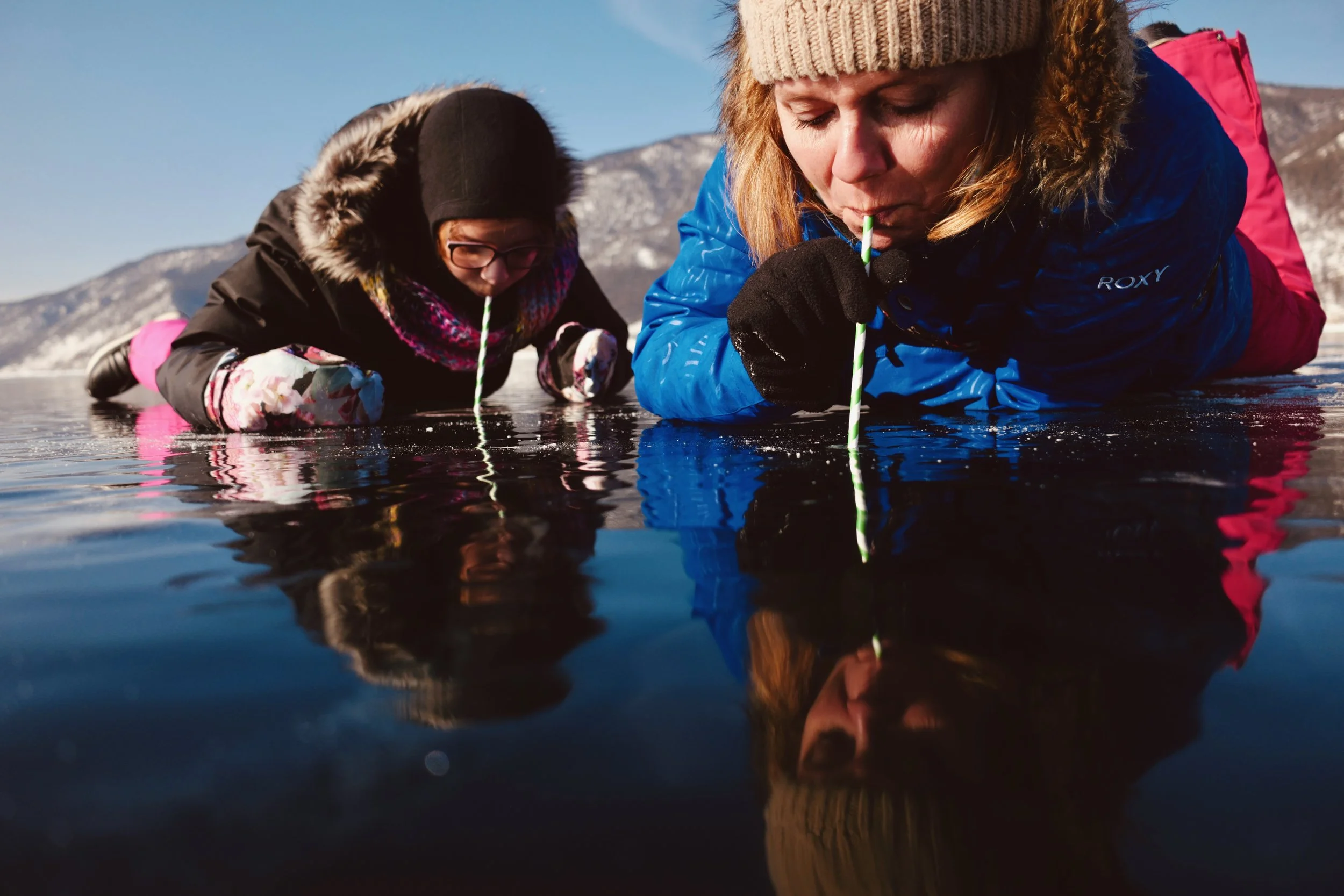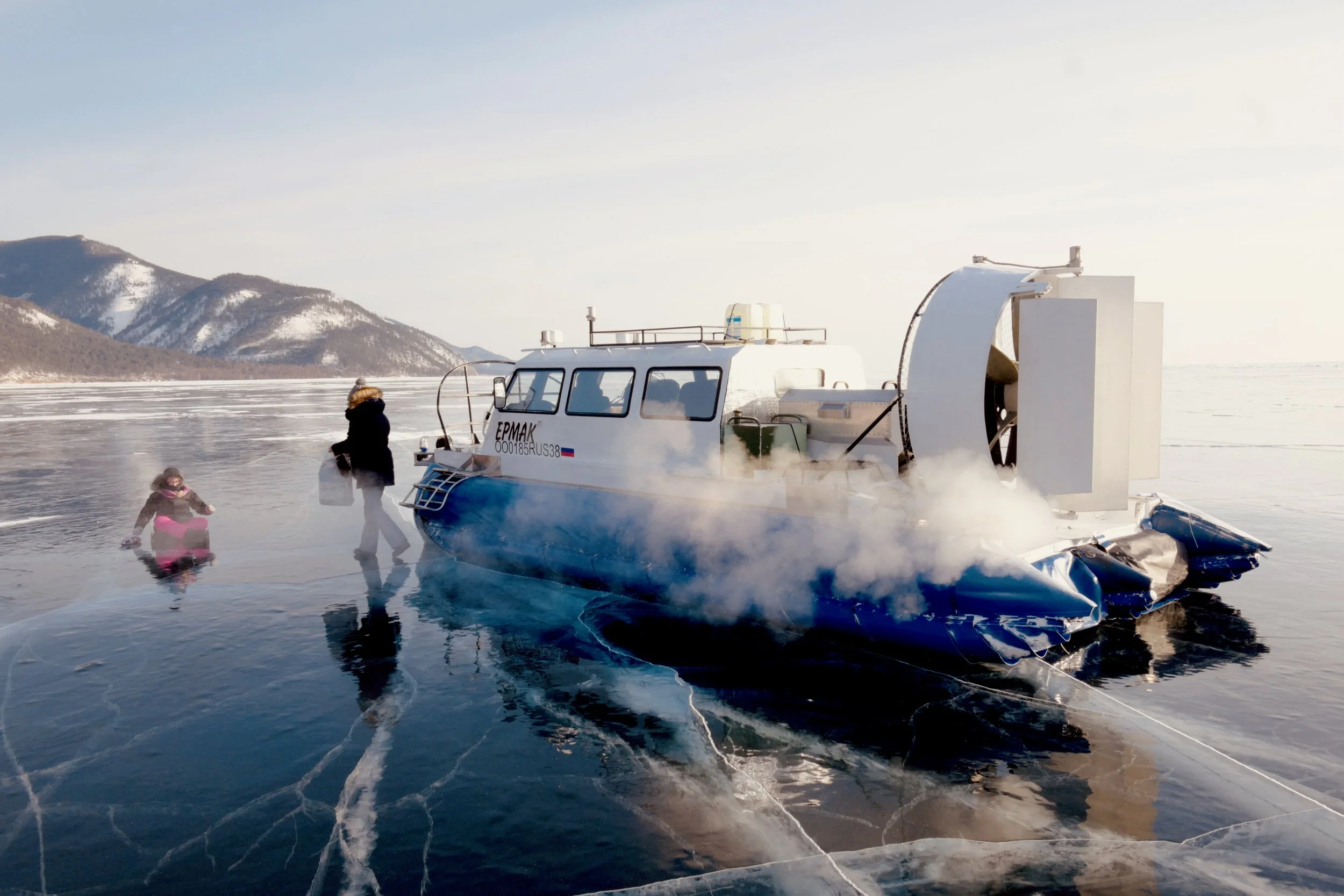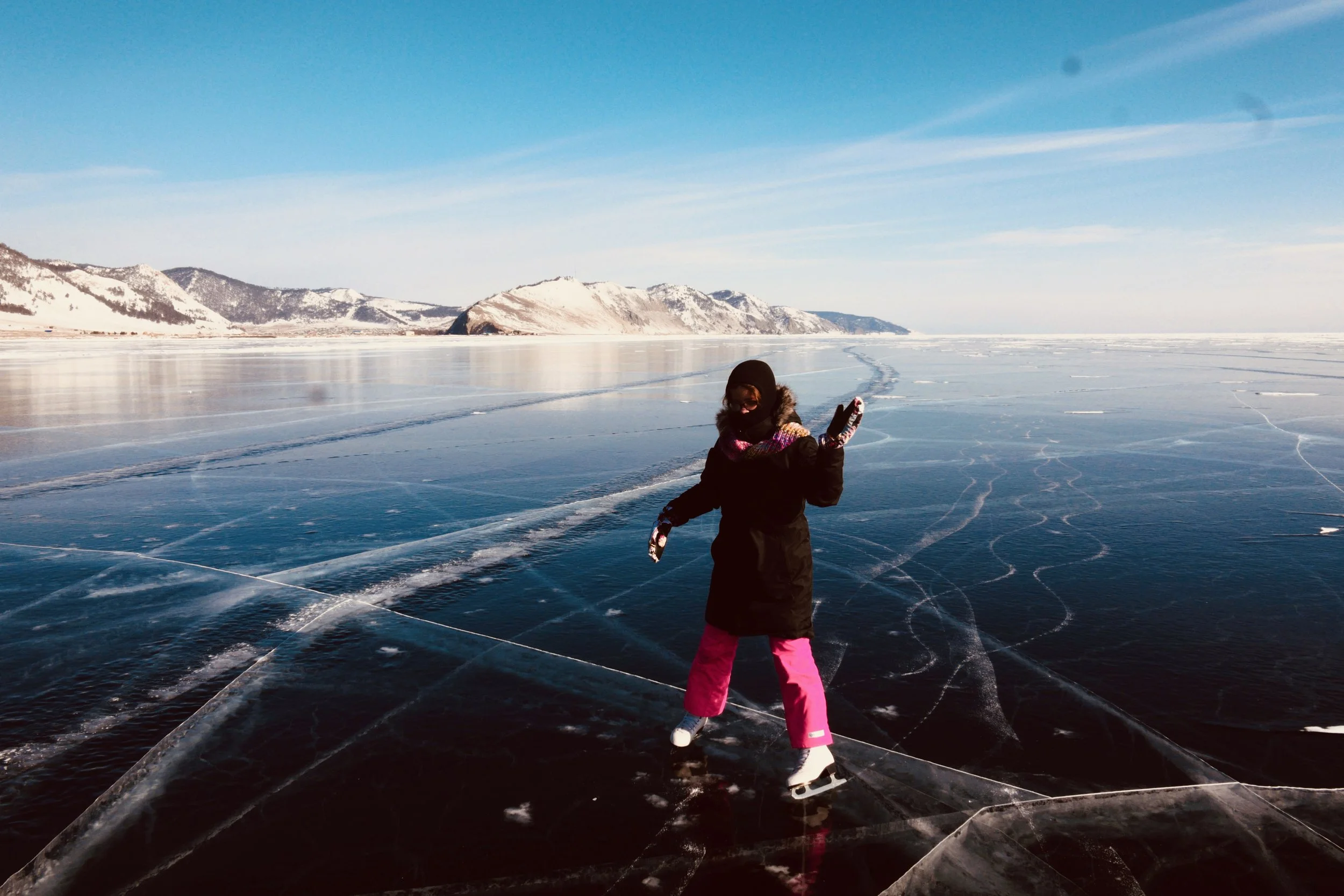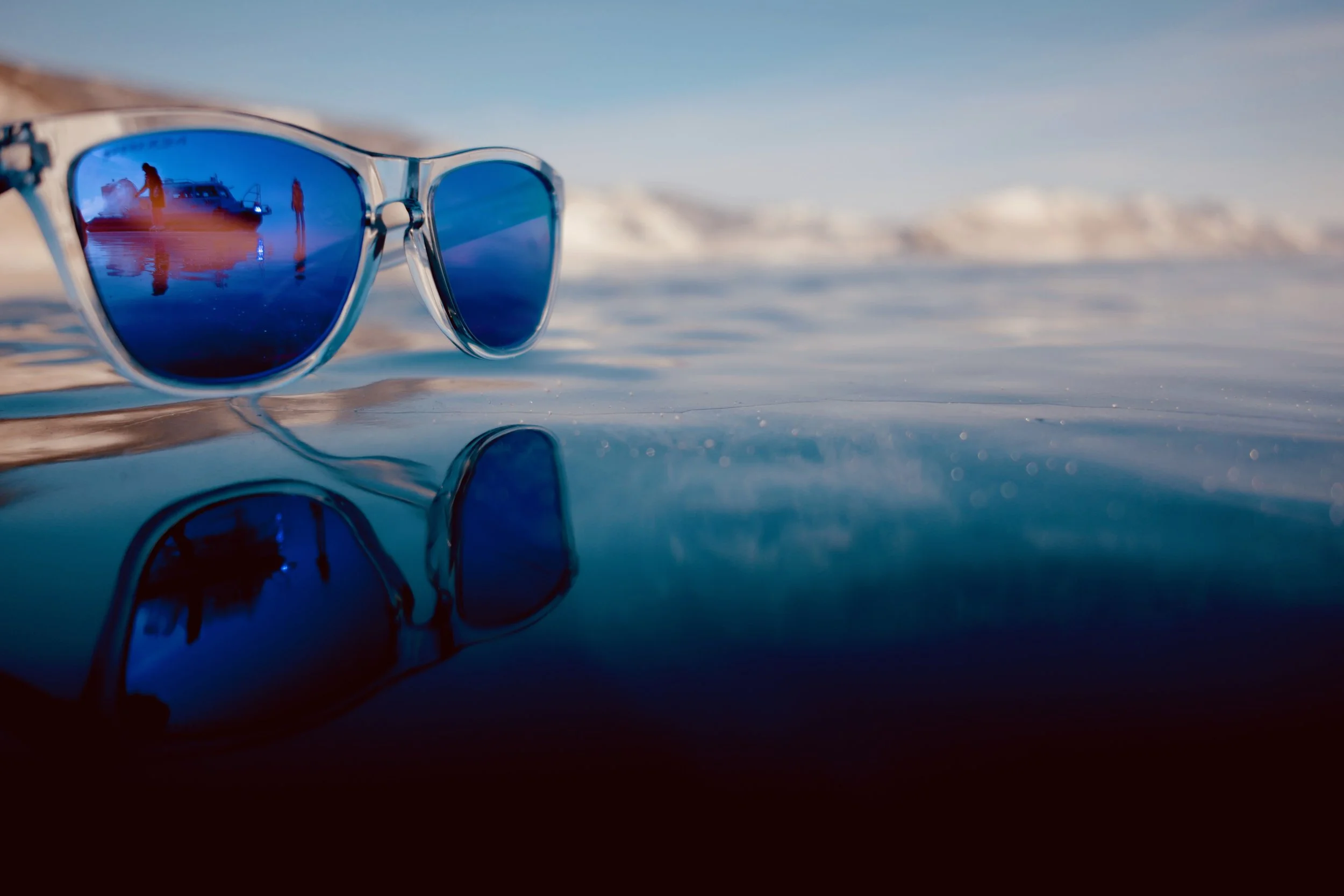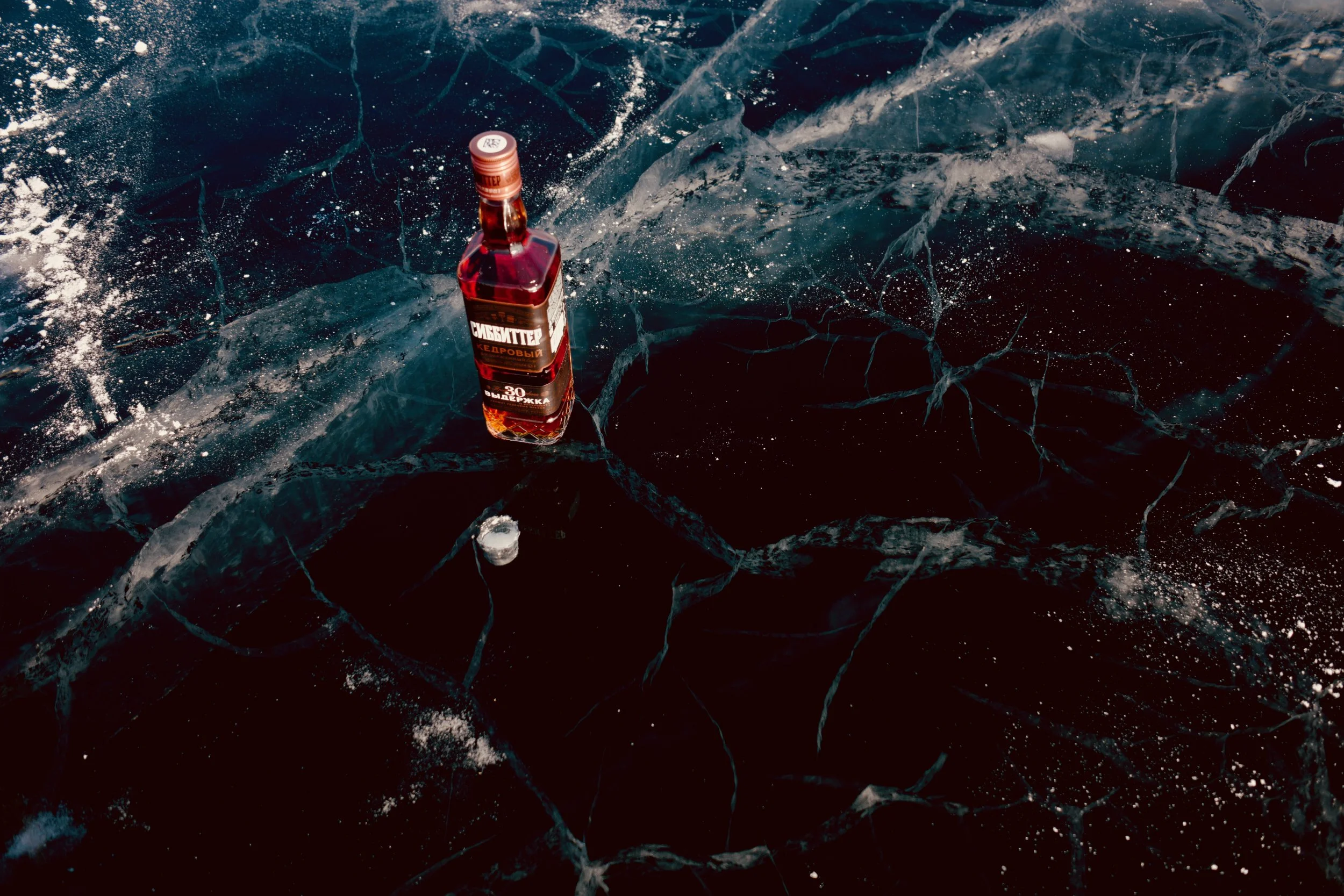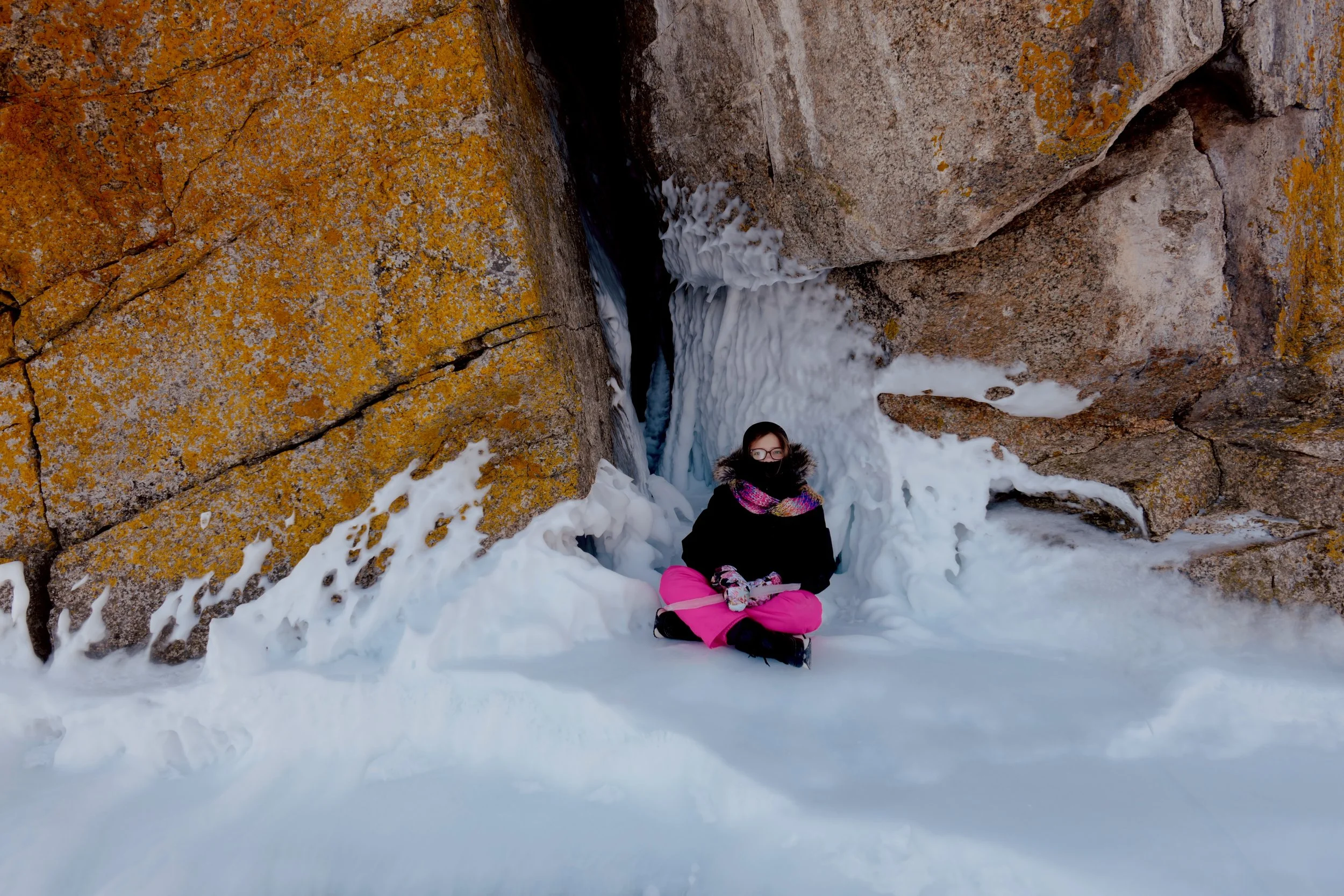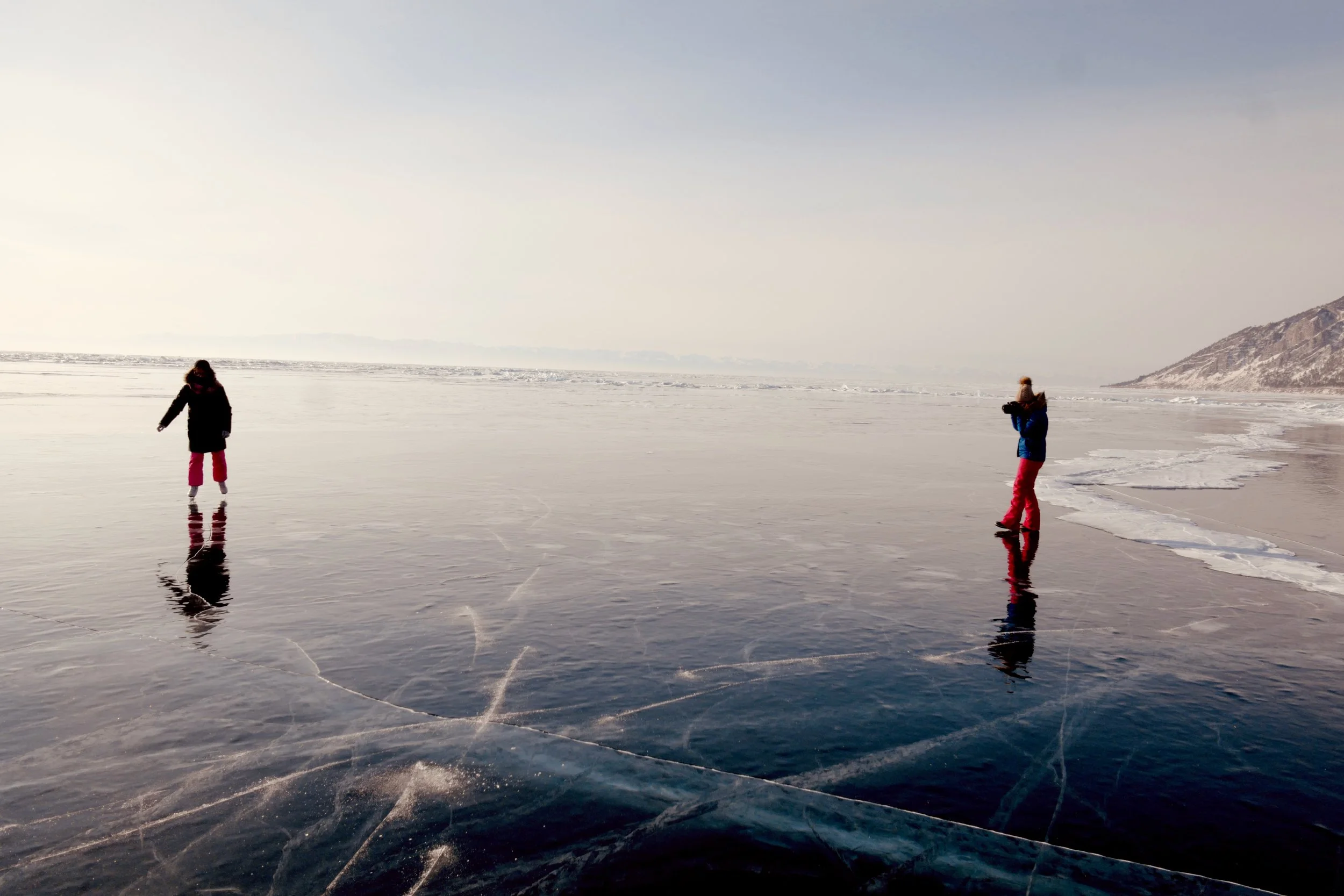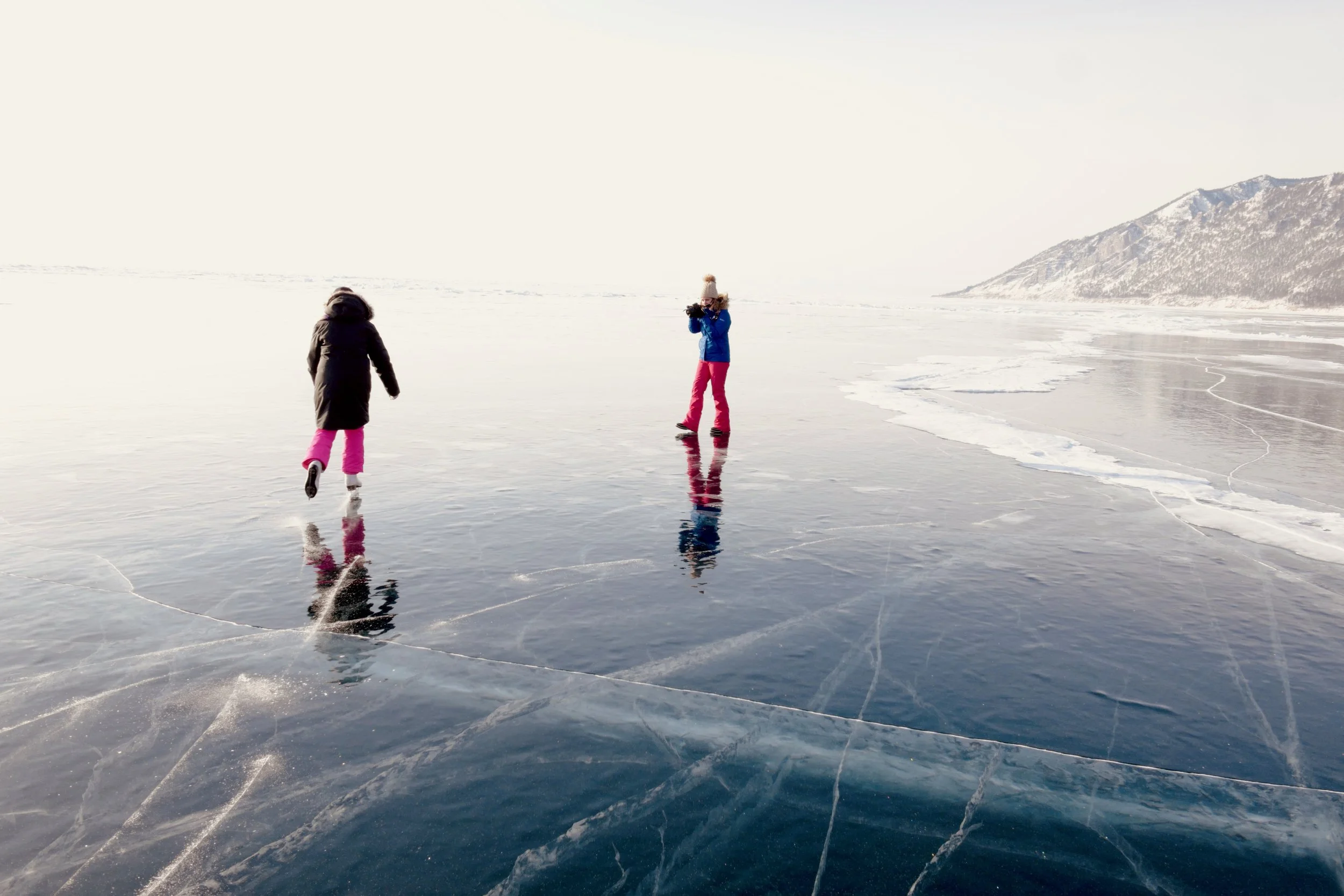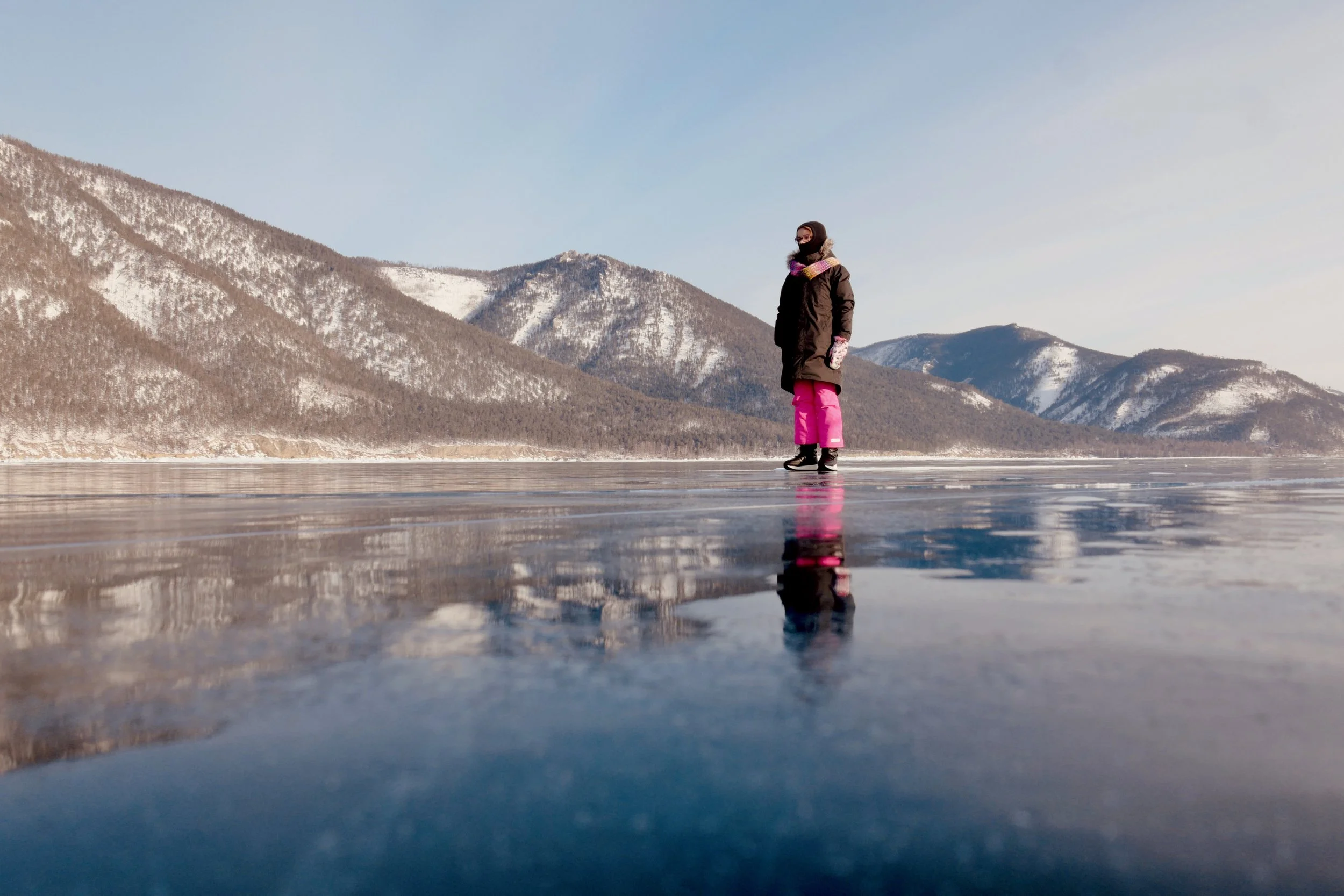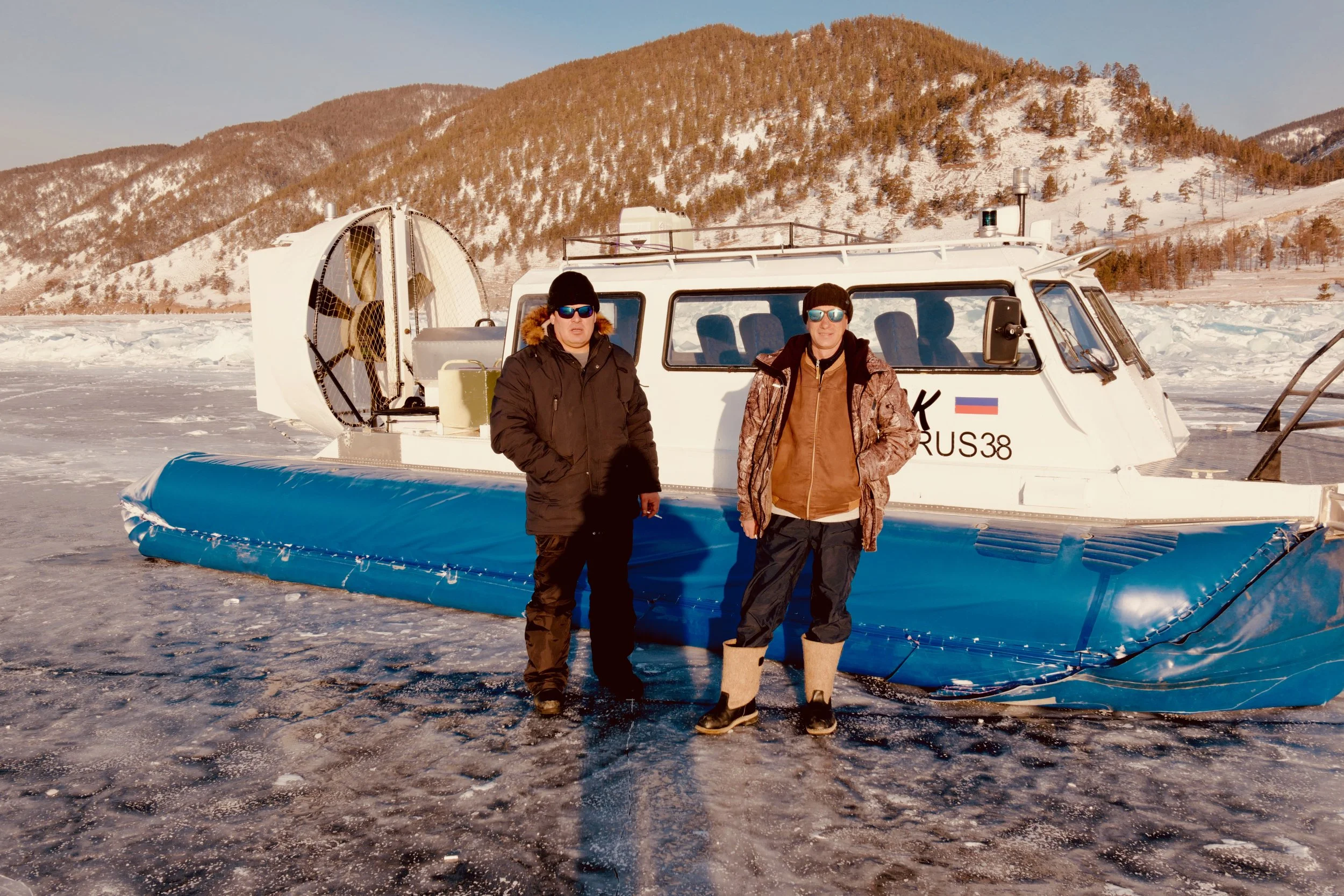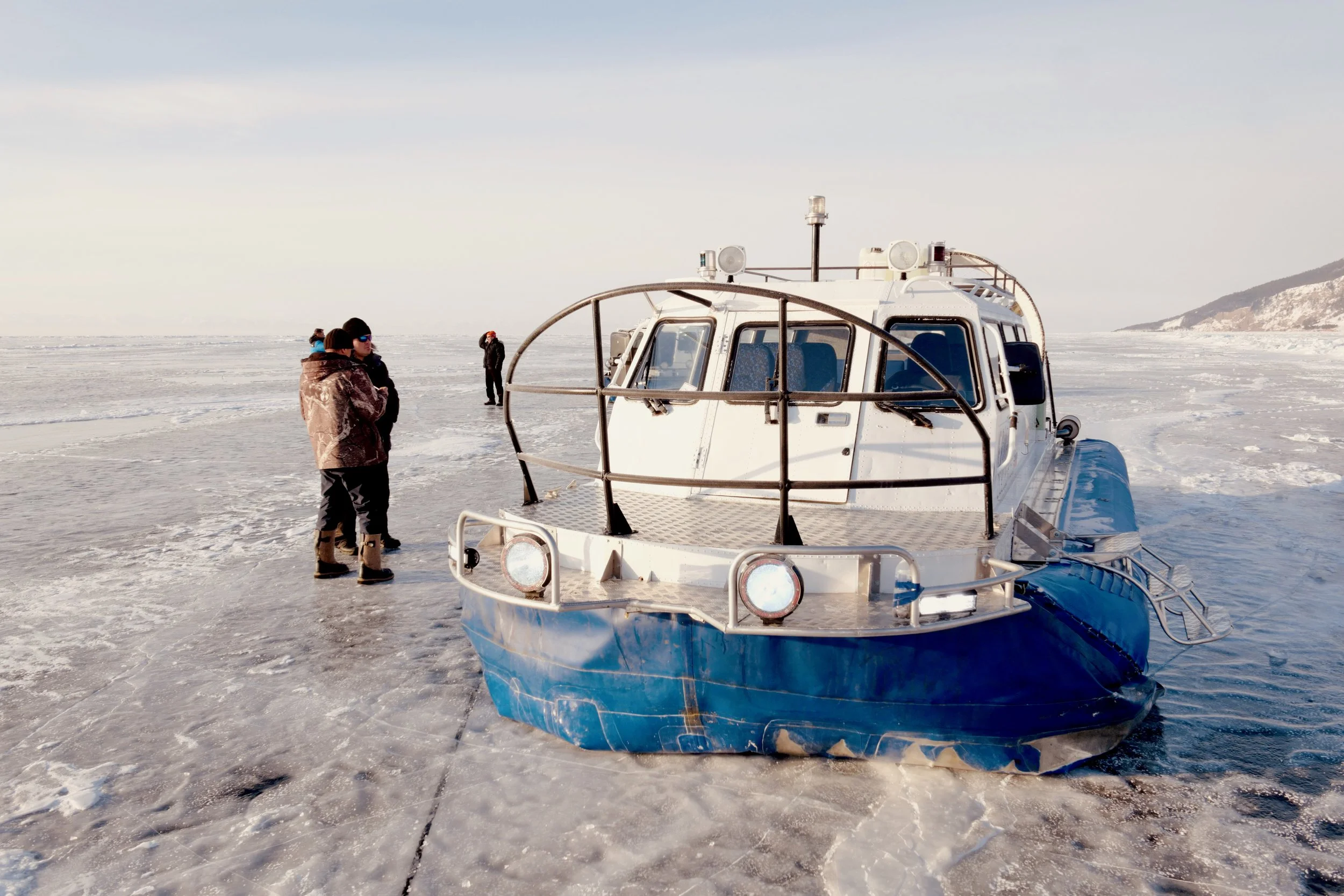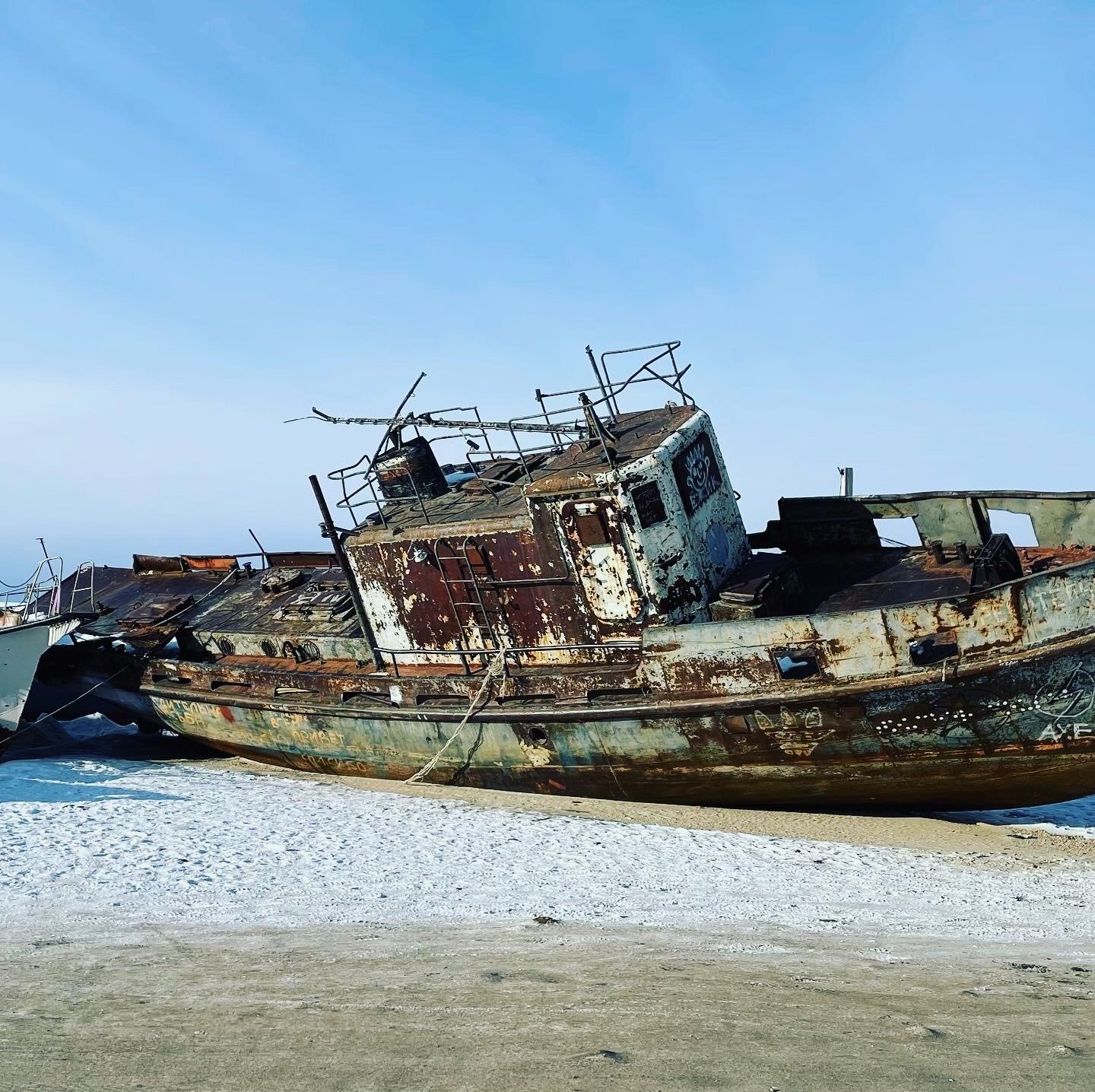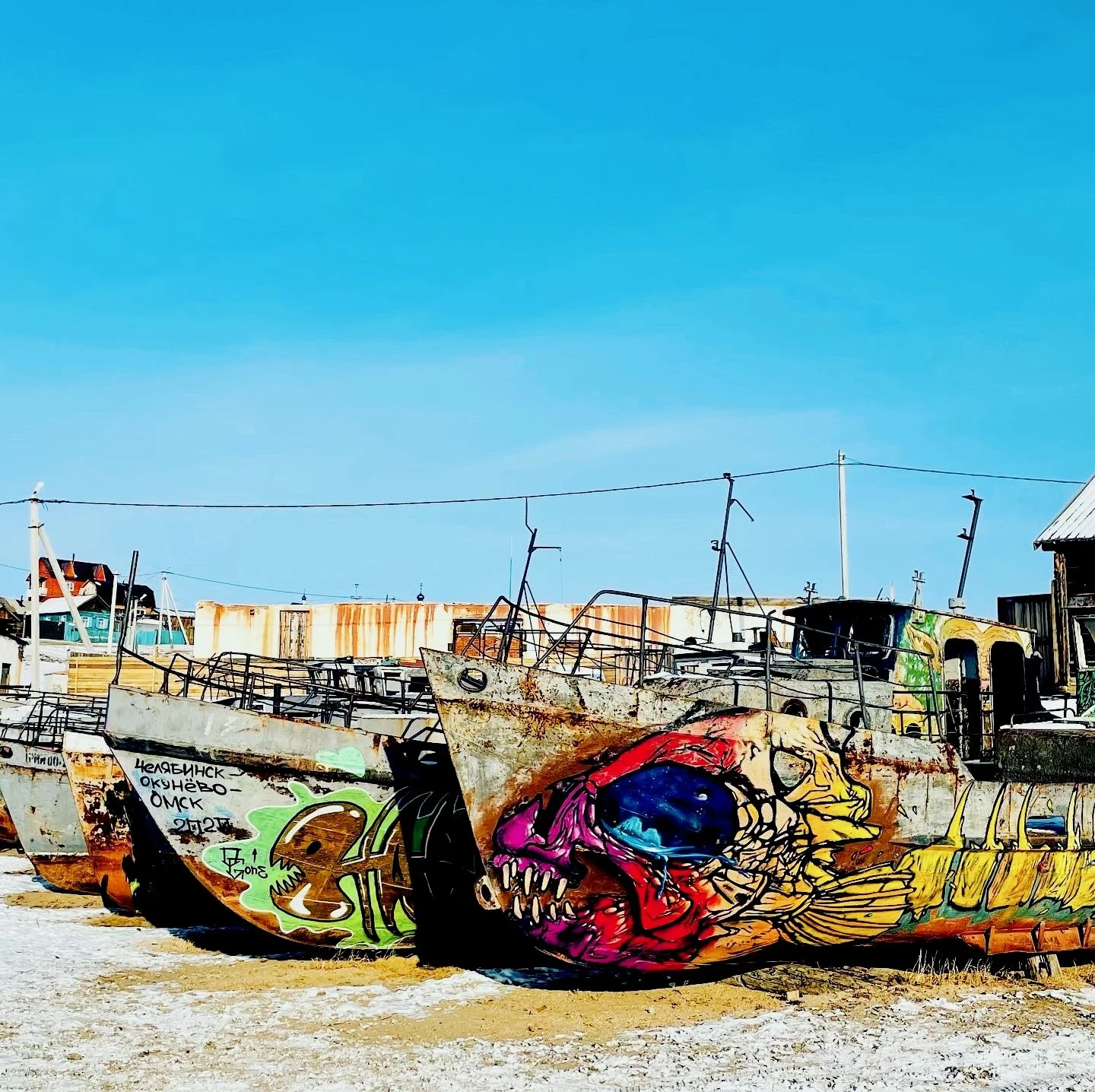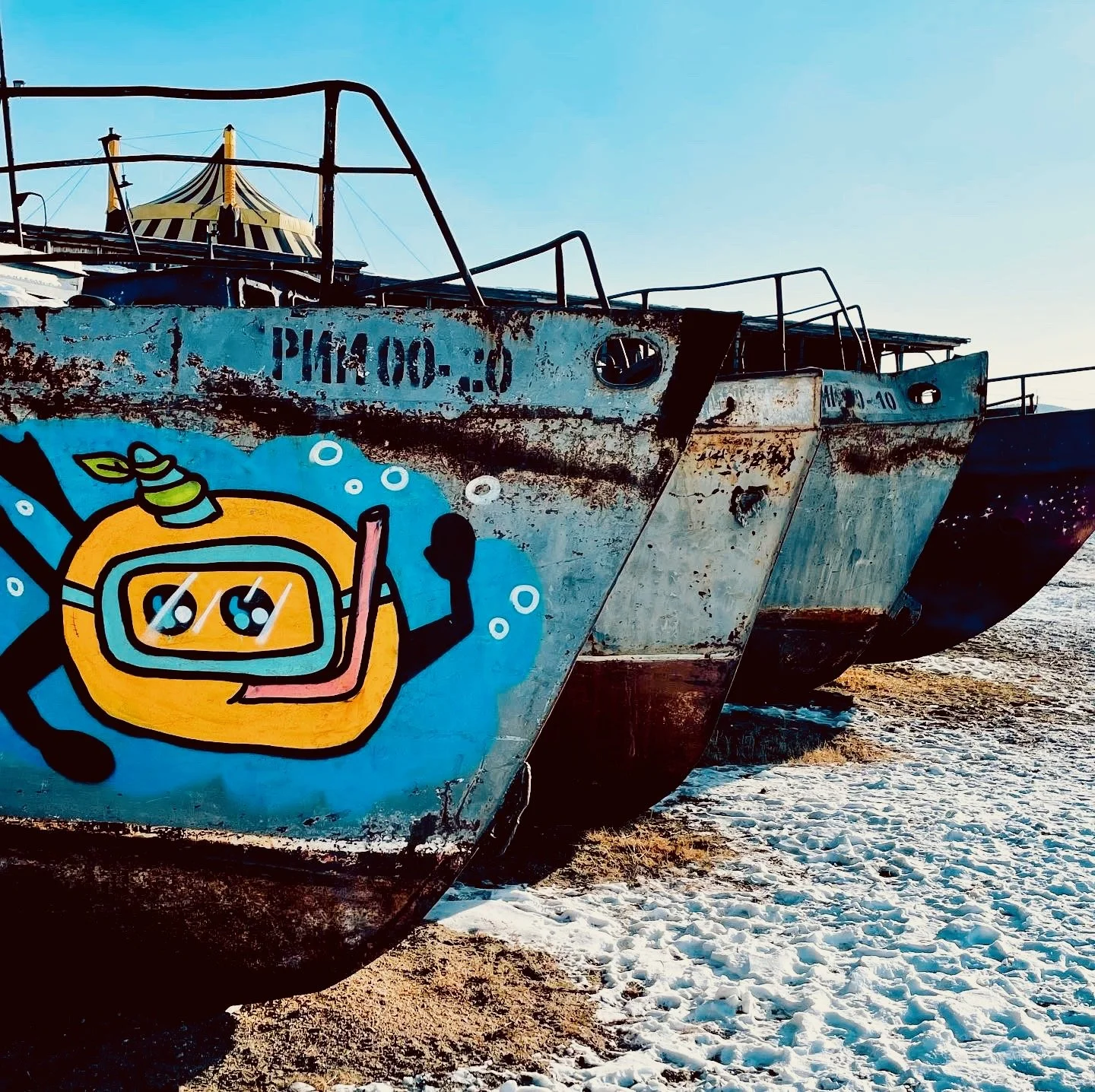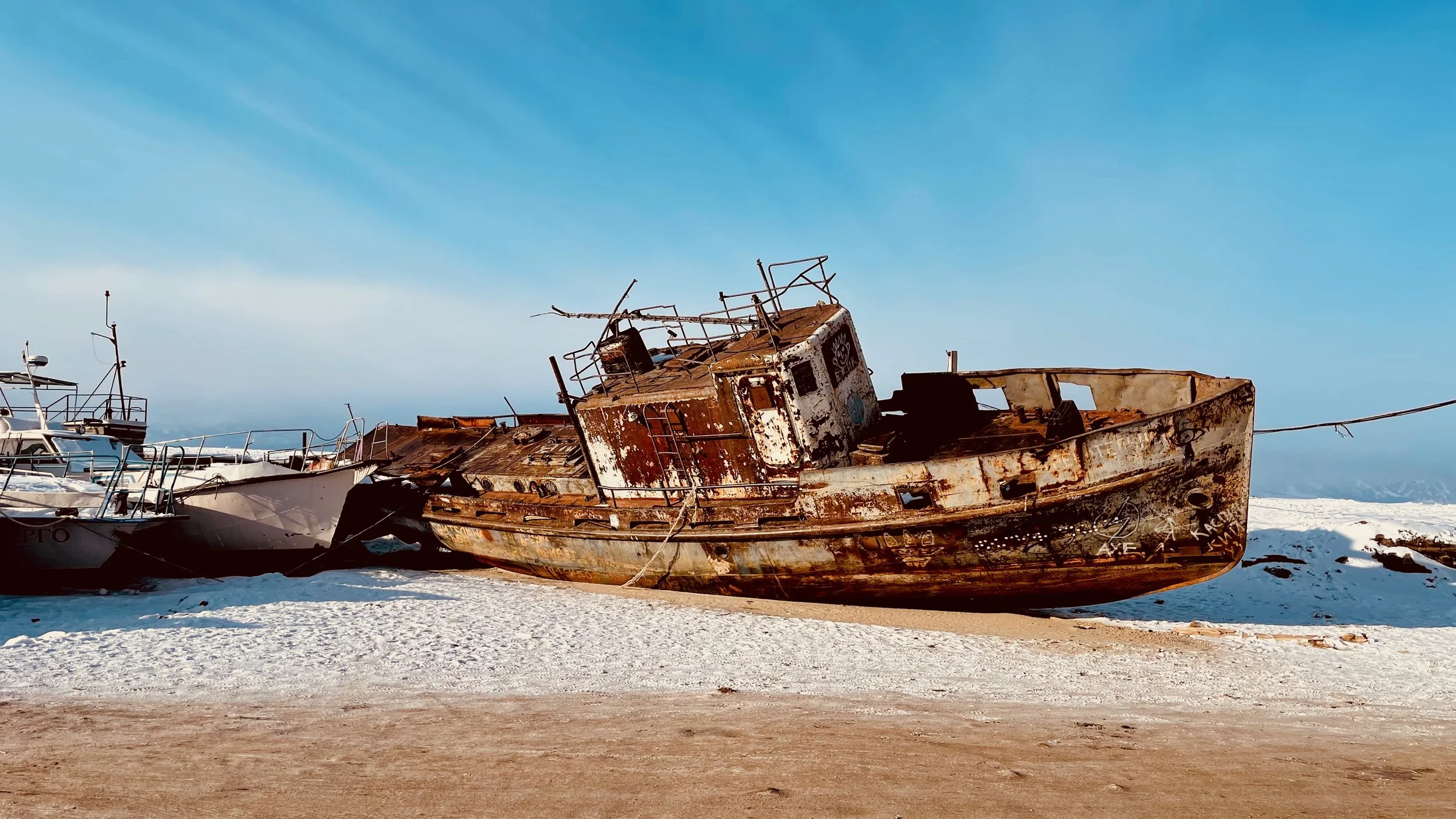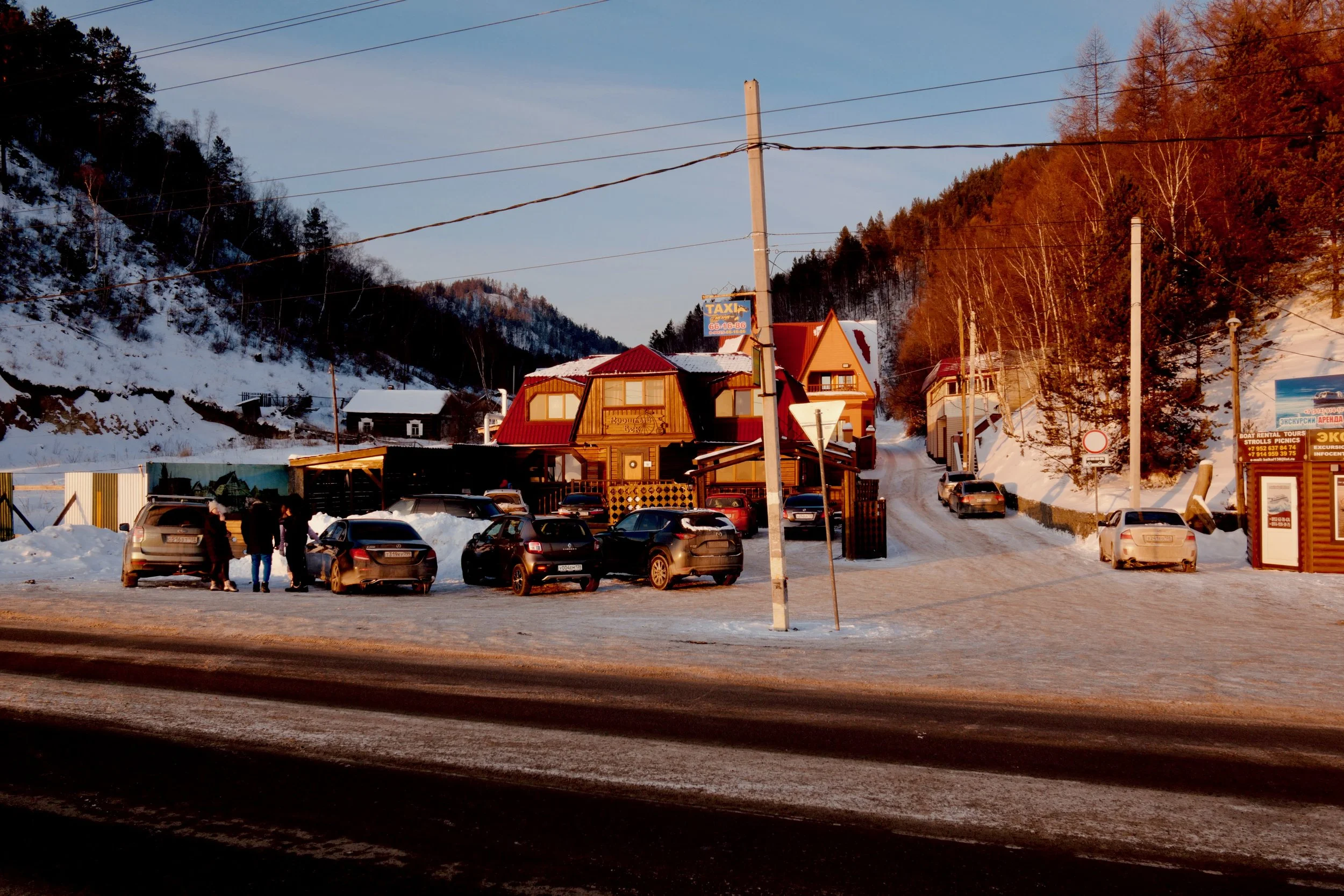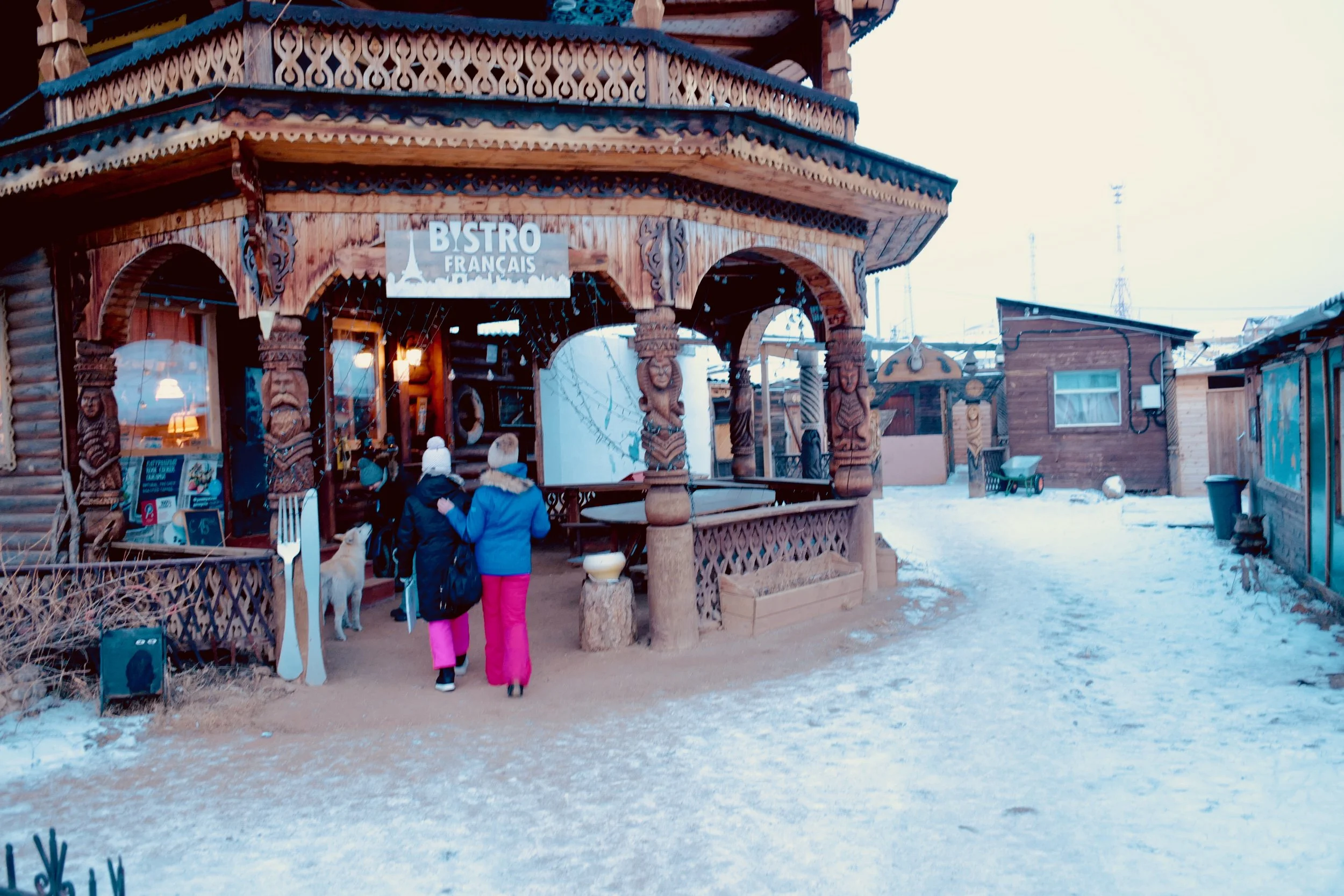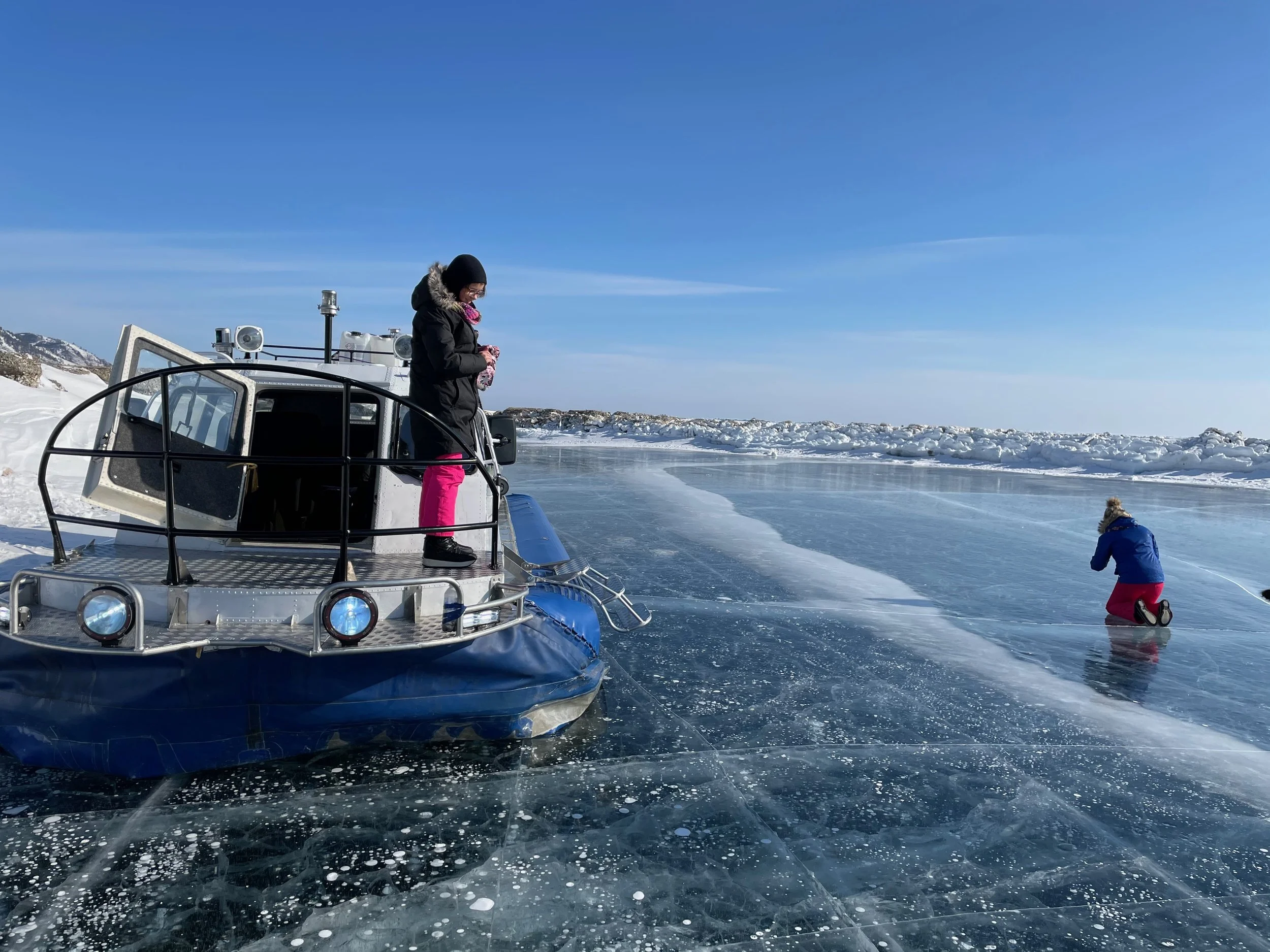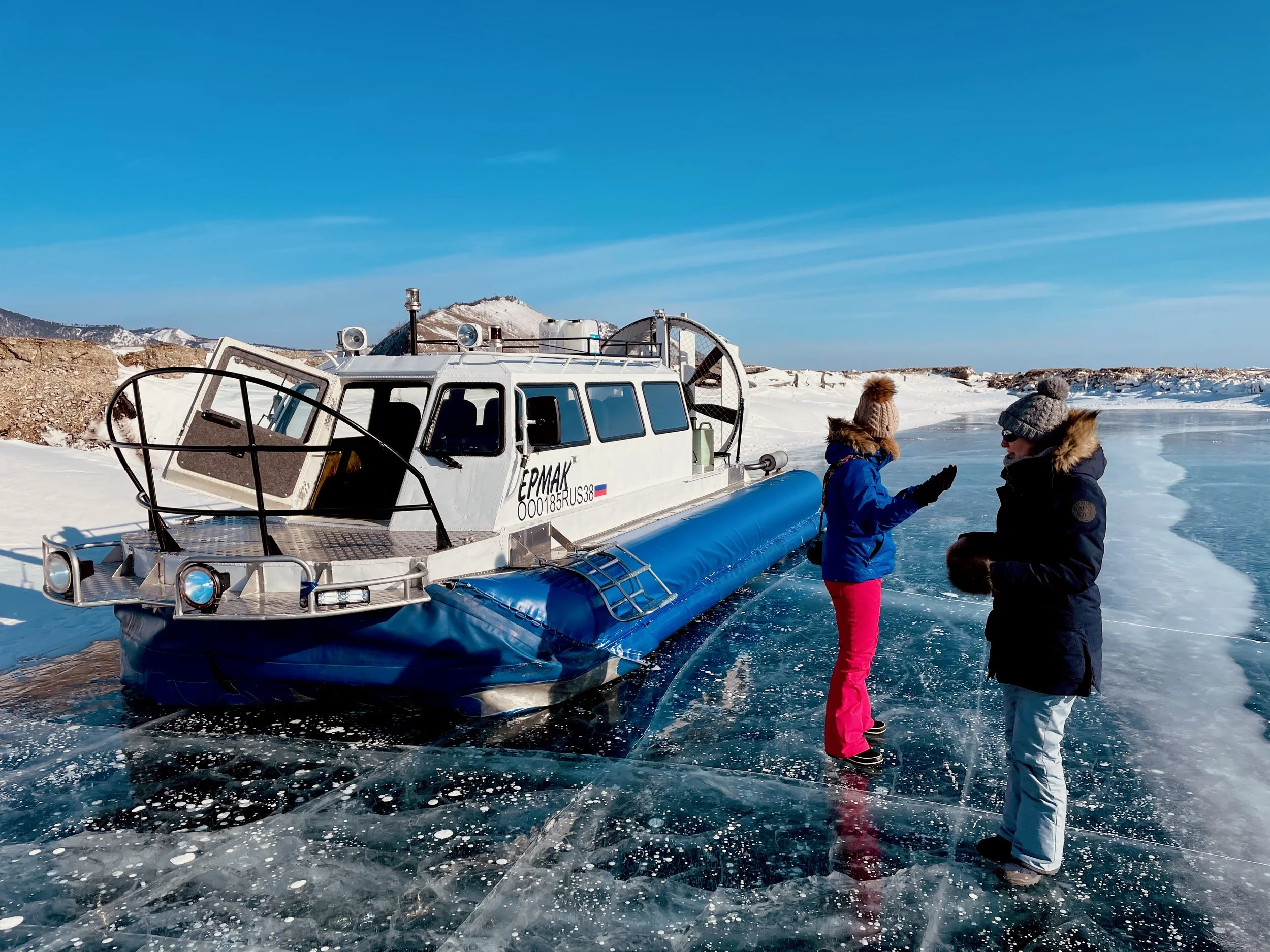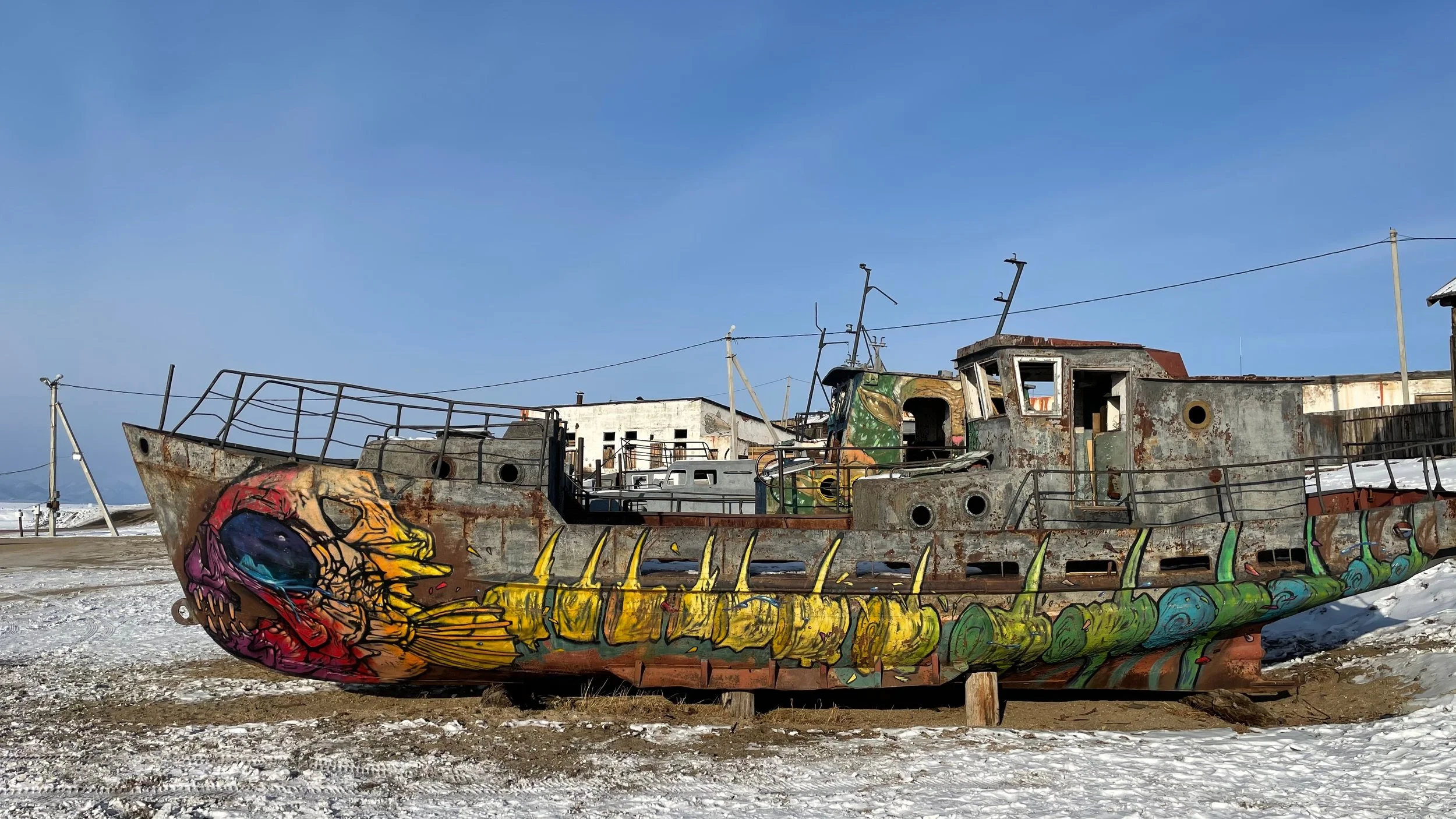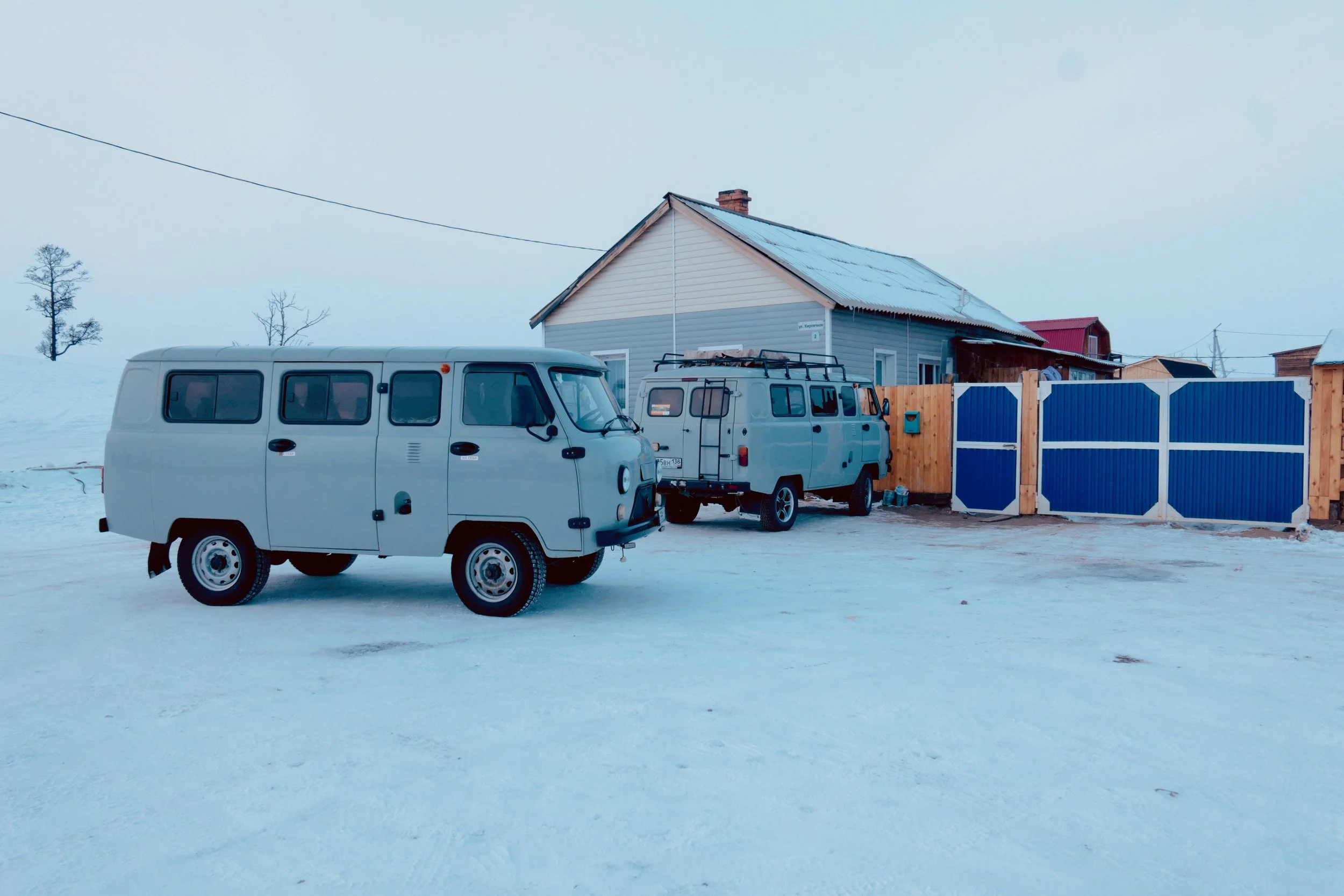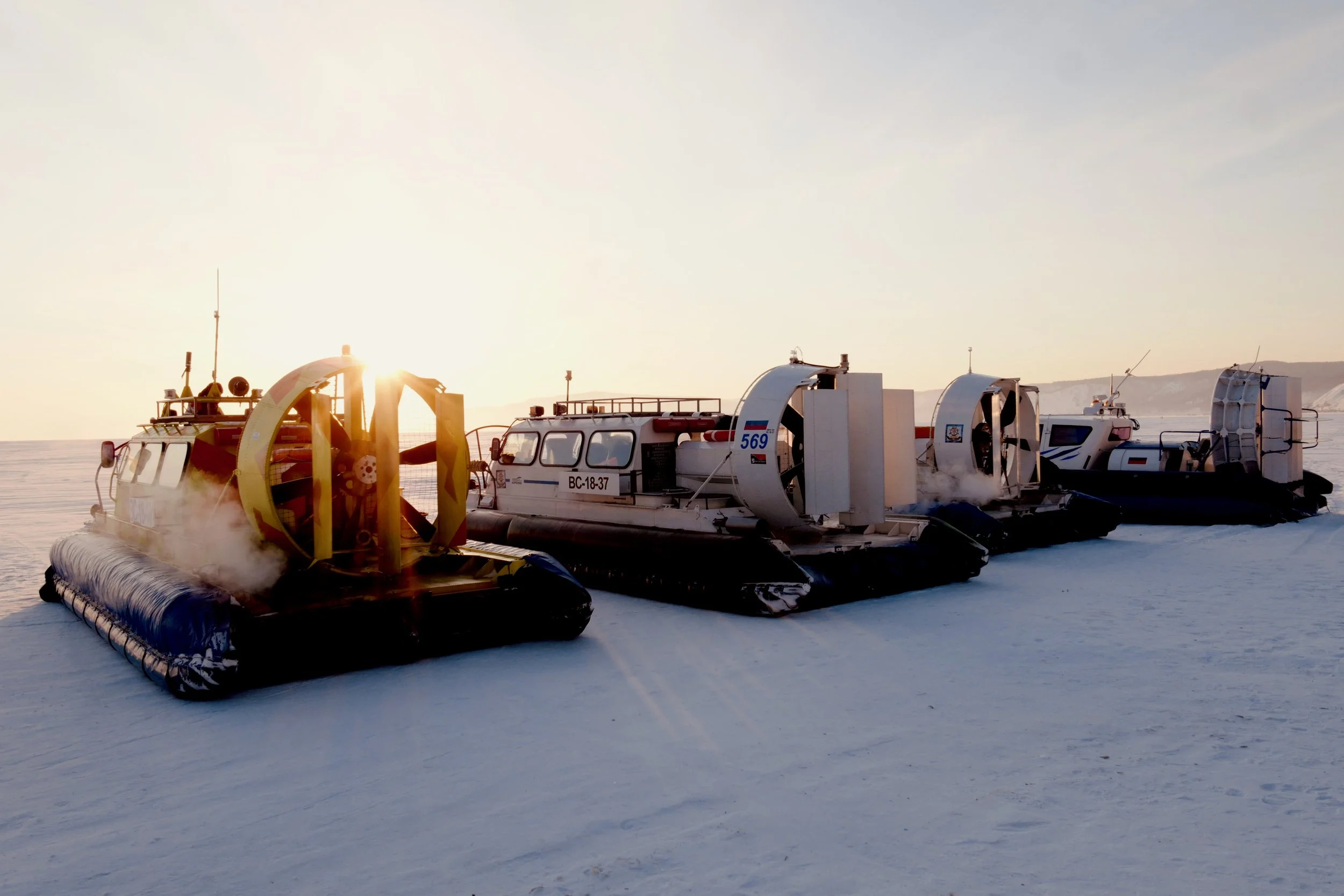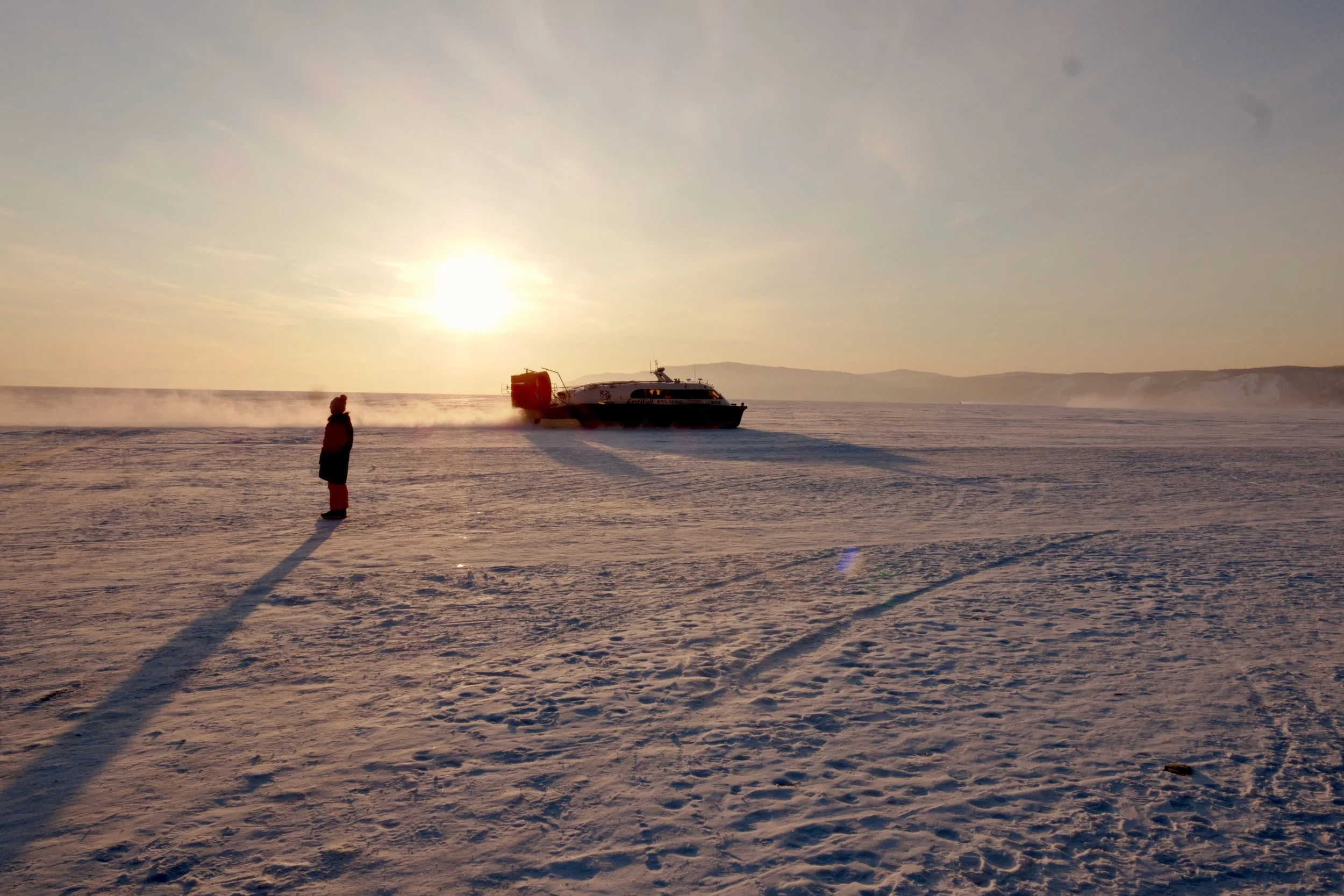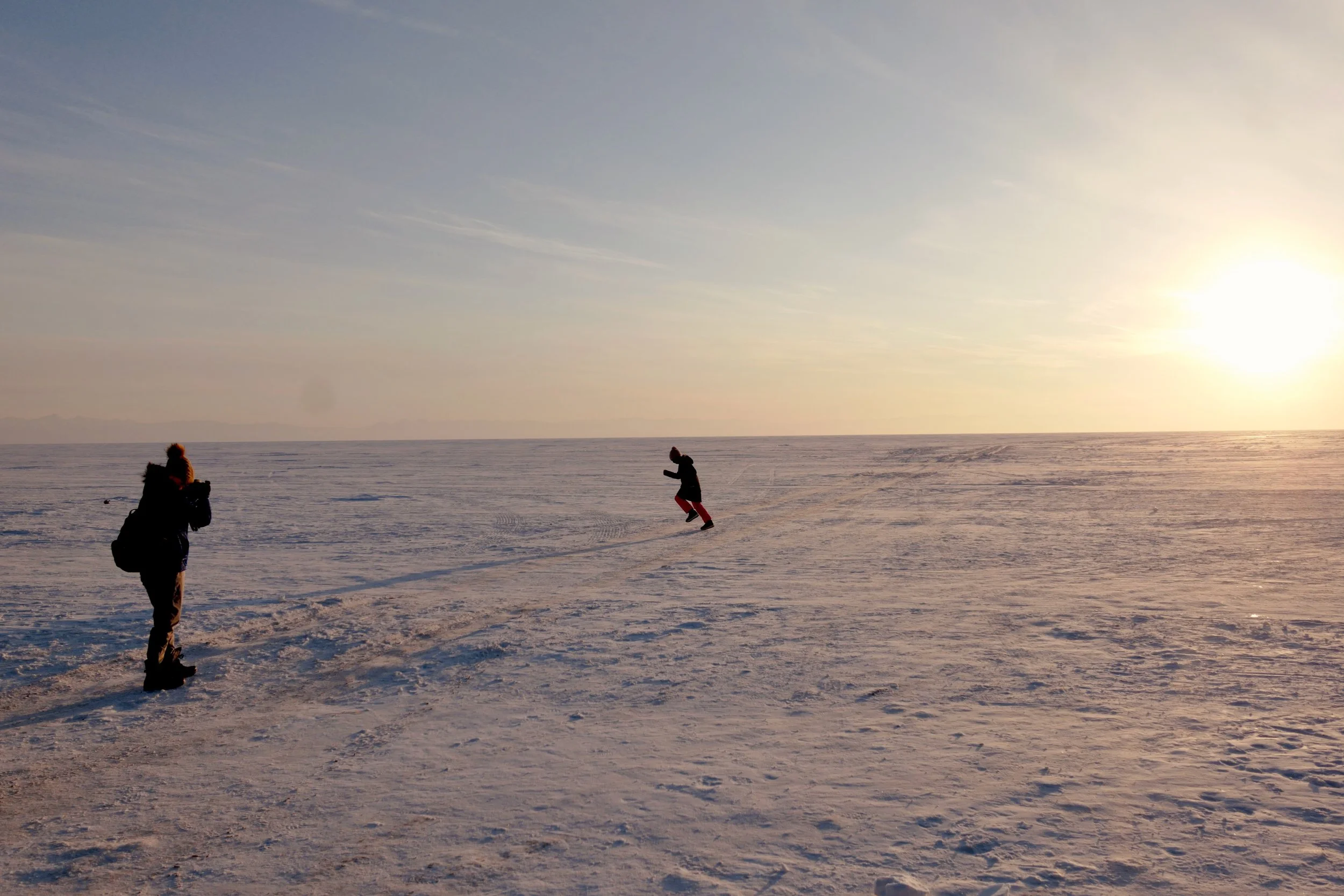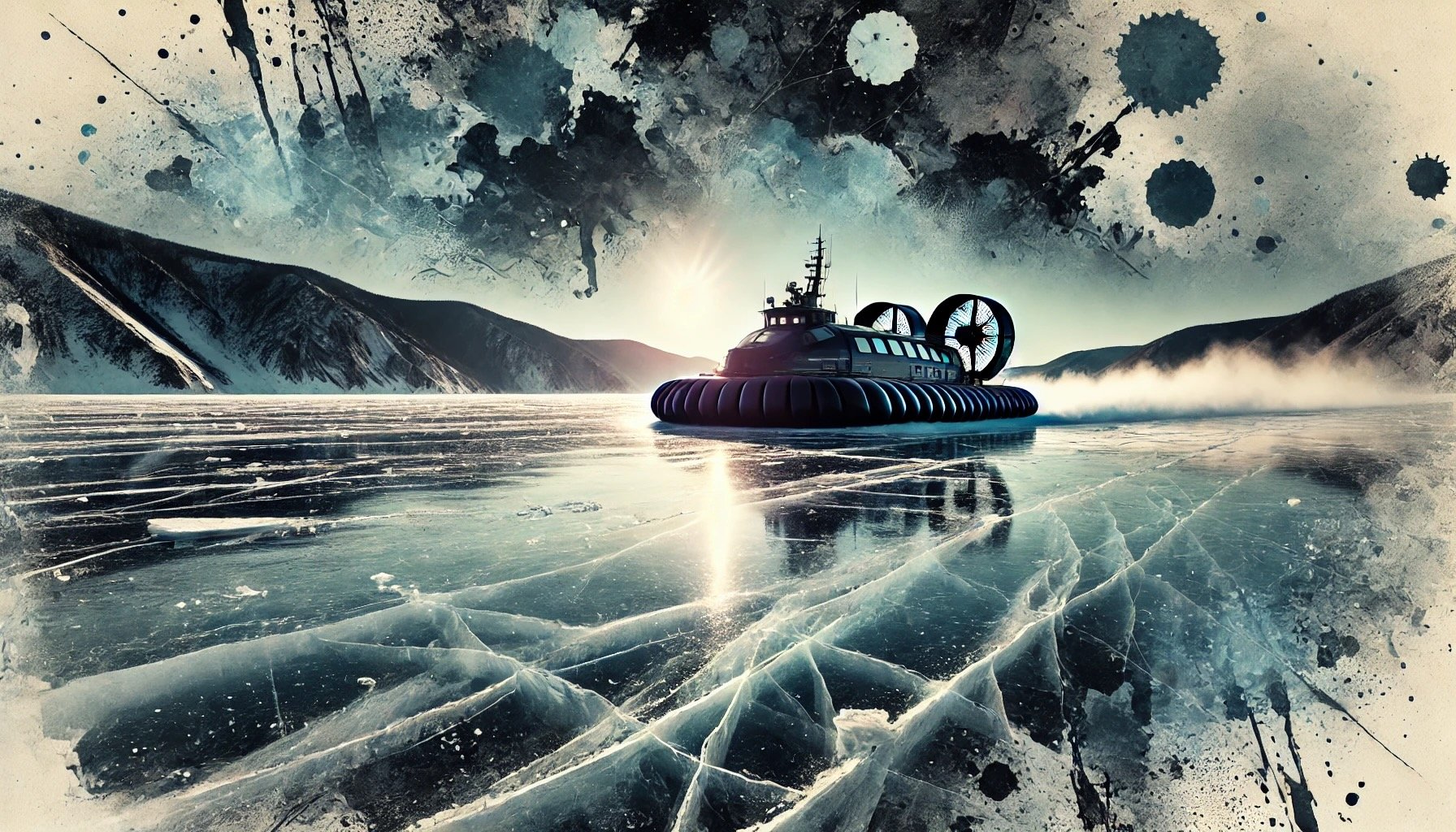
The Lake and the Bullfinch
The hovercraft skimmed across the frozen expanse like a ghost on glass.
Six seats. One mission.
The battered Hovervrast-6 buzzed northward up the western shore of Lake Baikal, its twin air fans cutting a dull roar through the Siberian silence. Judd sat near the back, the collar on his Fjällräven Singhi Down Jacket pulled up, eyes scanning the endless sheet of fractured white stretching into the horizon.
Lake Baikal was no ordinary lake. It was the oldest and deepest body of freshwater on Earth, carved by tectonic forces twenty-five million years ago. Over 20% of the planet’s unfrozen freshwater sat beneath its frozen skin, over a mile deep in places, and more ancient than any map dared to suggest.
In the heart of winter, it transformed into something otherworldly—its 636 km surface sheathed in ice so thick and clear you could read a book through it. Some called it the “Soul of Siberia.” Others, simply: “The Eye.
Massive ice hummocks cracked and groaned beneath them. In places, you could drive a full logging truck across without a hint of strain. It was nature’s superhighway—and today, it was their path.
Cindy, gloves off, leaned toward their local guide. “Do the thing.”
With a grin, the man retrieved a power drill and began carving into the glassy ice. Within seconds, he had punched a perfect round opening into the ancient lake. Judd handed him a small bottle of Russian Standard.
They crouched. Judd poured a stream of vodka directly into the hole.
“One sip, one legend,” he muttered.
They both dipped their heads. Lips touched the freezing vodka, then the freezing lake, and their heads shot up with a synchronized exhale.
“A Baikal Kiss,” Cindy declared, wiping her mouth with her sleeve. “The coldest kiss in the world.” “And on Valentine’s Day too!!”
Ava rolled her eyes but smiled. She laced up her skates, stepped lightly onto the ice, and glided away with casual grace. Under her blades, the frozen lake was riddled with long air bubbles trapped between layers of crystalline sheets—like frozen galaxies waiting to be discovered.
The hovercraft hissed to a halt on the shoreline of Olkhon Island, near Ulitsa Baikalskaya the road to the main village of Khuzhir. They walked past the beached fishing trawlers, blanketed with rebellious graffiti, adding color to the monotone of their surroundings.
Khuzhir looked like it had fallen out of time. Snow-covered roofs. Wooden fences leaning at impossible angles. Stray dogs wandered lazily between icy paths and ancient Lada Nivas parked beneath massive icicles.
They made their way to a humble wooden guesthouse, steam curling from the chimney.
An elderly couple welcomed them—Galina and Ivan—with warm smiles and a thick aroma of black tea and pirozhki wafting from the kitchen.
“Westerners?” Ivan asked in Russian. “In this season?”
Galina shook her head. “Not since the virus. You are… special guests?”
Judd exchanged a quick glance with Cindy. “Something like that.”
They dropped their gear, Ava slipping off her gloves to warm her hands on the old cast-iron radiator, then bundled up again. Their meeting was only a few blocks away. Olkhon Bistro Francais
The small bistro was dimly lit, rustic, and absurdly French. A wooden sign swung outside in the wind, the name hand-painted in chipped cursive. Inside, red gingham tablecloths and a single wall of Soviet propaganda posters collided in uneasy harmony.
At the back table sat their contact. Mikhail Voronov. Codename during the Cold War - Snegir or Bullfinch a symbol of good luck.
Now well into his eighties, Mikhail was rail-thin, with bright eyes and steady hands. He sipped a tiny glass of samogon and motioned for them to sit.
“I thought I’d never see the Order again,” he said in English, barely above a whisper.
“Tell us,” Judd said. “We’re here to listen.”
He had worked as a KGB translator and analyst during the height of the Cuban Missile Crisis. But secretly, Mikhail was feeding intel to The Inkwell Order, helping stop a Soviet offshoot program that intended to create genetically-altered couriers —human beings trained and biologically conditioned to carry information in their blood, encoded into their RNA.
The program was called Project Orpheus.
Mikhail smuggled the medical files, disrupted two key trials, and ensured that the lead scientist—Dr. Anatoly Chernov—was discreetly “redirected” to a civilian post in Irkutsk. The Order buried the evidence and ensured the project was erased from all known files.
“But it didn’t stay dead,” Mikhail said. “Wolf’s people… they found traces of Orpheus. Just before I retired.”
Judd’s pulse ticked up.
This was before anyone in The Order had ever heard of Sebastian Wolf.
But Wolf, clearly, had already heard of them.
“I saw the file. A codename: Lazarus,” Mikhail added. “He’s trying to revive the original research. But modern. Scaled. Global.”
Judd leaned back, stunned. It was the first thread.
The first whisper.
The trio walked home in silence through the falling snow. The air was impossibly still. No wind. Just the crunch of boots and the low groan of ice in the distance.
Inside, Galina had left a kettle on the stove and an extra pile of wool blankets by the stove. Ava curled up with a book near the fire. Cindy and Judd sat together, sipping strong tea laced with lemon and honey, lost in thought.
Something had just shifted.
This wasn’t just a routine background mission anymore.
A bright blue UAZ-450 idled outside the guesthouse, exhaust curling into the cold. Known colloquially as the Bukhanka—or “loaf of bread”—this Soviet-era van was first introduced in the 1960s and had changed very little since. Built like a steel brick and known for its brutal simplicity, it was used for everything from ambulance work to off-road expedition supply runs.
Their guide, Yuri, waved them over with a grin.
“Ready for adventure?” he called out in accented English. “I have a few things to show you before we leave Baikal.”
Judd nodded and opened the door.
It groaned like an old man.
But what lay ahead was brand new.

